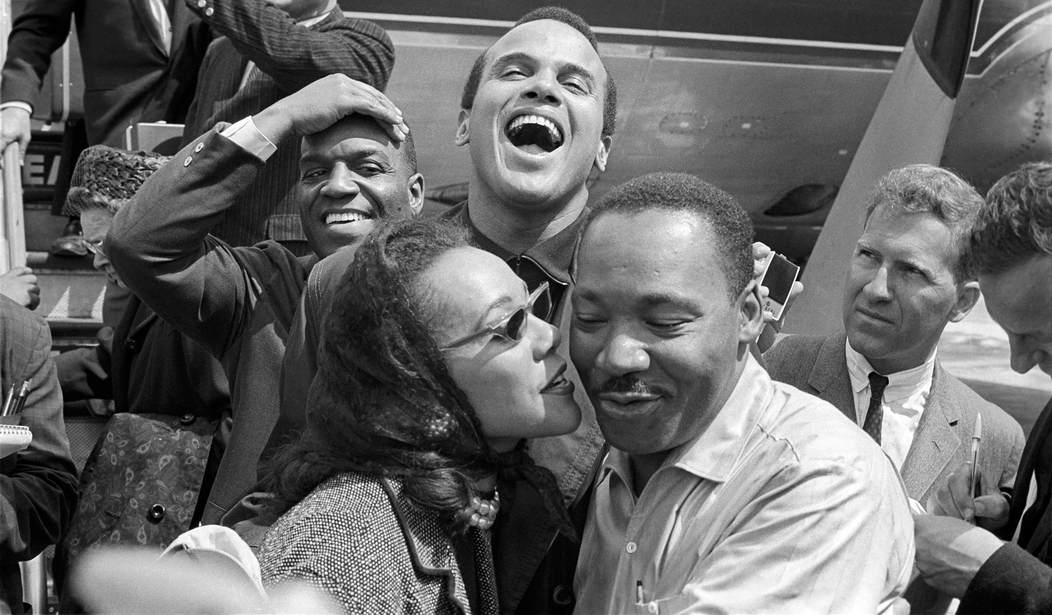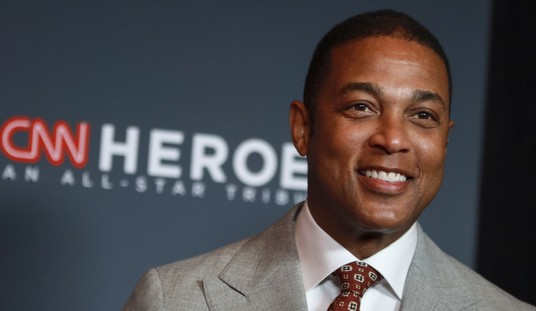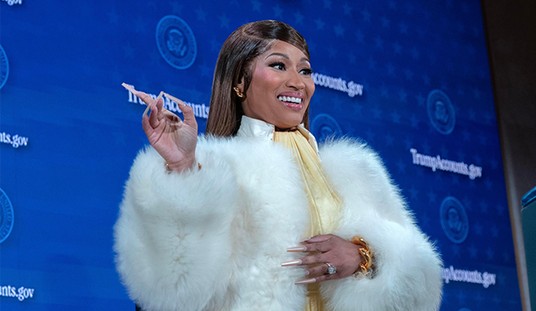While politically Harry Belafonte would have been on the opposite side of what is published in these online portals, his exceptionally rich life was consequential to the times in which he lived, and consequential to the generations of actors, singers, and activists that followed after him. If the measure of a man is the impact he makes in the lives around him, then Belafonte’s measure was full.
The prolific performer and talented artist died on Tuesday. He was 96.
Today we lost a titan in the entertainment industry, the legendary Harry Belafonte. A singer, actor, activist, philanthropist, great person and so much more, Harry Belafonte paved the way for so many Black artists in the entertainment industry. At one point he was the highest… pic.twitter.com/fK8C9tlzSR
— Earvin Magic Johnson (@MagicJohnson) April 25, 2023
From the Associated Press:
Harry Belafonte, the civil rights and entertainment giant who began as a groundbreaking actor and singer and became an activist, humanitarian and conscience of the world, has died. He was 96.
Belafonte died Tuesday of congestive heart failure at his New York home, his wife Pamela by his side, said publicist Ken Sunshine.
With his glowing, handsome face and silky-husky voice, Belafonte was one of the first Black performers to gain a wide following on film and to sell a million records as a singer; many still know him for his signature hit “Banana Boat Song (Day-O),” and its call of “Day-O! Daaaaay-O.” But he forged a greater legacy once he scaled back his performing career in the 1960s and lived out his hero Paul Robeson’s decree that artists are “gatekeepers of truth.”
Harry Belafonte was so much a fixture in my home growing up that we considered him a part of our family. Harry was more than a friend to our family. He was also a treasured political ally who worked hand in hand as a supporter, counselor, and strategist with my father and uncle… pic.twitter.com/3vJrckT87f
— Robert F. Kennedy Jr (@RobertKennedyJr) April 25, 2023
Belafonte was known as much for his civil rights advocacy as he was for his acting and music, and for good or ill, he felt no need to compartmentalize.
From Variety:
An intimate of Dr. Martin Luther King Jr., Belafonte was an important voice in the ’60s civil rights movement, and he later embarked on charitable activities on behalf of underdeveloped African nations. He was an outspoken opponent of South Africa’s apartheid policies.
Belafonte provided financial support to the civil rights leader and his family. He also funded the Freedom Riders and the Student Non-Violent Coordinating Committee and was a key figure in the organization of the historic March on Washington of August 1963.
When I was a child, #HarryBelafonte showed up for my family in very compassionate ways.
In fact, he paid for the babysitter for me and my siblings.
Here he is mourning with my mother at the funeral service for my father at Morehouse College.
I won’t forget…Rest well, sir. pic.twitter.com/31OC1Ajc0V
— Be A King (@BerniceKing) April 25, 2023
And as one of the first Black leading men of his era, he became a lightning rod for controversy—controversy that he did not shy away from.
The racial tumult of the ’60s hit close to home: In 1968 he became the center of a furor when he appeared as a guest star on an NBC special hosted by British pop singer Petula Clark. During a performance of an anti-war ballad, Clark clutched Belafonte’s arm. Doyle Lott, VP for sponsor Chrysler-Plymouth, was present at the taping and demanded the number be excised, saying the “interracial touching” might offend Southern viewers. But Clark, who owned the show, put her foot down and the show aired as recorded, while exec Lott was fired by the automaker.
In terms of his entertainment career, Belafonte was a quadruple threat: first as an actor and singer, then as a director and producer. My favorite roles of Belafonte were in the films Buck and the Preacher (1972) and Uptown Saturday Night (1974).
Harold George Belafonte Jr. was born in New York but was sent to live with his grandmother in Jamaica at age 5, returning to attend high school in New York. But Jamaica’s indigenous calypso and mento would supply crucial material for his early musical repertoire.
After serving in the war, Belafonte gravitated to the New York theatrical scene. An early mentor was the famed Black actor, singer and activist Paul Robeson. He studied acting with Erwin Piscator and attended Broadway shows — on a single ticket he would hand off at intermission — with another struggling young actor, Sidney Poitier. Like Poitier, he performed at Harlem’s American Negro Theater.
Belafonte first made his mark, however, as a nightclub singer. Initially working in a pop and jazz vein, Belafonte began his singing career at New York’s Royal Roost and made his recording debut in 1949 on Roost Records. He soon developed a growing interest in American folk music.
Belafonte was doing musical tours at New York’s Village Vanguard and Blue Angel when a talent scout from MGM saw him at the Blue Angel. After a screen test, Belafonte was featured in his first film opposite Dorothy Dandridge in 1953’s Bright Road. He received his Tony award for his performance that same year in the John Murray Anderson’s Almanac review. Then Otto Preminger cast Belafonte as the lead in the 1954 musical Carmen Jones, once again opposite Dorothy Dandridge. Ironically, his singing voice was dubbed by opera singer LeVern Hutcherson.
He made his RCA Records debut in 1954 with “Mark Twain and Other Folk Favorites”; he had performed the titular folk song with his guitarist Millard Thomas in his Tony-winning Broadway turn. The 1956 LP “Belafonte,” featuring a similar folk repertoire, spent six weeks at No. 1.
Those collections were a mere warm-up to “Calypso.” The 1956 album sparked a nationwide calypso craze, spent a staggering 31 weeks at No. 1 and remains one of the four longest-running chart-toppers in history. It spawned Belafonte’s signature hit, “Banana Boat Song (Day-O),” which topped the singles chart for five weeks. A parody of that ubiquitous number by Stan Freberg reached No. 25 in 1957. Director Tim Burton employed the tune to bright effect in his 1988 comedy “Beetlejuice.”
Belafonte would cut five more top-five albums — including two live sets recorded at Carnegie Hall — through 1961. His 1960 collection “Swing Dat Hammer” received a Grammy as best ethnic or traditional folk album; he scored the same award for 1965’s “An Evening With Belafonte/Makeba,” a collaboration with South African folk artist Miriam Makeba.
He also supplied early employment for a future folk icon: His 1962 album “Midnight Special” featured harmonica work by Bob Dylan.
It was Belafonte who organized the 1985 recording session for “We Are the World,” the star-studded single which raised funds for the famine victims in Africa. Such a long and consequential life deserved documentation. In 2011, Belafonte published his memoir, My Song (with Michael Shnayerson). In 2012, Belafonte produced Sing Your Song, a biographical documentary with director and editor Susanne Rostock.
Harry Belafonte is survived by his third wife Pamela, three daughters and one son, two stepchildren, and eight grandchildren.















Join the conversation as a VIP Member